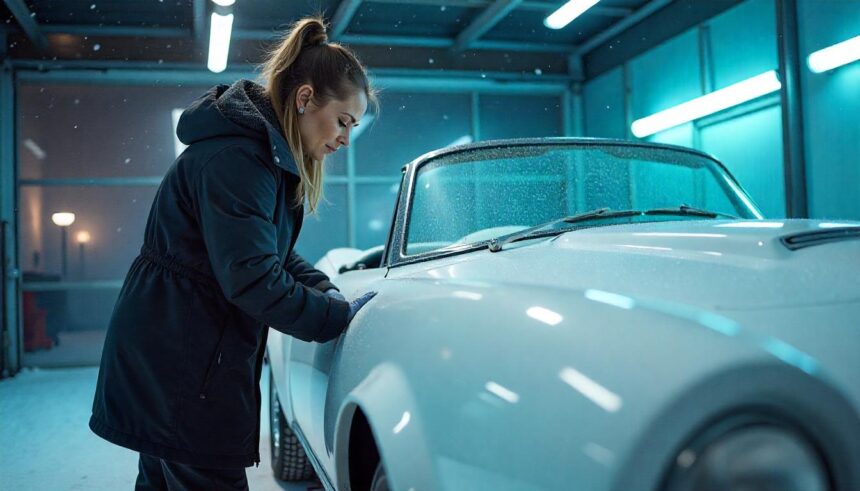Introduction to car wrapping and its benefits
Car wrapping has become a popular trend for vehicle owners looking to refresh their ride without the commitment of a full paint job. Whether you’re aiming for a sleek matte finish or an eye-catching graphic design, car wraps offer versatility and style. Beyond aesthetics, they also provide protection against scratches and UV damage, extending the life of your vehicle’s original paint. But before you dive into this transformative experience, it’s essential to understand what it costs to wrap a car.
The price isn’t just about the material; several factors come into play that can significantly affect your final bill. From the size of your vehicle to whether you choose professional installation or decide to tackle it yourself, knowing these details will help you budget effectively. So let’s explore how much it really costs to wrap a car and what influences those costs!
Factors that affect the cost of car wrapping
The cost of wrapping a car varies widely based on several key factors. The size and type of the vehicle play a significant role. Larger cars, like SUVs or vans, typically require more material compared to compact cars.
Another important factor is the quality of vinyl used for the wrap. Premium materials may come with higher upfront costs but often provide better durability and finish.
Design complexity cannot be overlooked either. Custom graphics or intricate designs can increase labor time and expenses.
Location also impacts pricing; urban areas might have higher rates due to demand and overhead costs.
The expertise of the installer matters greatly. Experienced professionals usually charge more, reflecting their skill level and reputation in delivering high-quality results.
Average cost breakdown for different types of cars
The average cost to wrap a car can vary significantly based on the vehicle type. For compact cars, you might expect to spend between $2,500 and $3,500. These smaller vehicles require less material, making them more budget-friendly.
Mid-sized sedans typically fall in the range of $3,000 to $4,000. They provide a bit more surface area but still remain relatively manageable for wrapping.
SUVs and trucks usually command higher prices due to their size. Wrapping these larger vehicles can cost anywhere from $4,000 to $6,000 or more.
Luxury cars often come with premium price tags as well; costs may exceed $7,000 depending on the complexity of the design and materials used. Each type of vehicle presents unique considerations that affect pricing beyond just size alone.
DIY vs professional car wrapping costs
DIY car wrapping can seem tempting. After all, it’s often marketed as a budget-friendly option. The cost of materials alone may range from $200 to $600 for vinyl wrap rolls, depending on quality.
However, the hidden costs add up quickly. Tools like squeegees, heat guns, and exacto knives are essential but can push your expenses higher. Plus, if you make mistakes during application—think bubbles or wrinkles—you might need to buy extra material.
On the other hand, professional services typically charge between $1,500 and $3,000 for a full wrap. This includes labor and expertise that ensures a flawless finish. Professionals use high-quality materials and have experience with complex curves and edges that DIYers might struggle with.
While DIY offers savings upfront, consider whether your time and effort balance out against potential mishaps in aesthetics or durability.
Additional expenses to consider when getting a car wrap
When budgeting for a car wrap, it’s essential to consider additional expenses beyond the initial wrapping cost.
Preparation is vital. If your vehicle needs paint correction or surface repairs before applying the wrap, these costs can add up quickly.
Maintenance also plays a role. Regular cleaning with specific products can prolong the life of your wrap but may require investment in specialized care items.
Don’t overlook removal costs either. When it’s time for a new design or you want to revert back to the original finish, hiring professionals for careful removal ensures no damage occurs.
Permit fees might apply in certain areas if you’re using advertising wraps on company vehicles—always check local regulations beforehand.
Each of these factors contributes significantly to the overall financial picture when deciding how much does it cost to wrap a car.
Tips for finding a reputable and affordable car wrapping service
When searching for a reputable car wrapping service, start by exploring online reviews. Websites like Yelp and Google Reviews offer insights into customer experiences. Take note of any recurring themes in feedback.
Next, ask for recommendations from friends or family who have wrapped their cars. Personal experiences can guide you to trustworthy providers.
Request quotes from multiple shops. Comparing prices helps ensure you’re getting a fair deal without compromising quality.
Don’t hesitate to check portfolios of previous work. A skilled professional should showcase successful projects that reflect their style and expertise.
Inquire about warranties or guarantees on the wrap materials used. Quality services often back their work with assurances that protect your investment against defects or fading over time.
Conclusion: Is car wrapping worth the cost?
When considering whether car wrapping is worth the cost, it’s essential to weigh the benefits against your budget. Car wraps offer a unique way to customize your vehicle without the permanence of a paint job. They can protect the original paint, provide a fresh look, and even serve as mobile advertising.
The investment varies significantly based on factors like vehicle size, complexity of design, and professional expertise. While DIY options may save you some cash upfront, they often lack the quality and durability that professionals provide.
If you’re looking for an eye-catching transformation or want to safeguard your car’s surface while promoting your brand, investing in a wrap could be worthwhile. With careful research and planning, you can find options that fit both your style preferences and financial constraints. Whether it’s enhancing aesthetics or preserving value—car wrapping might just be what you need for a versatile solution on wheels.







